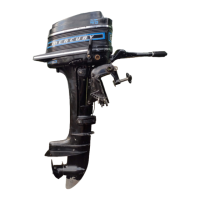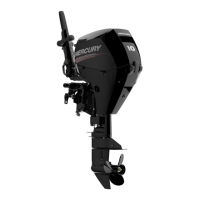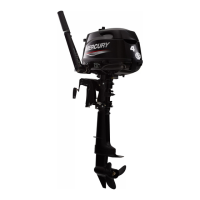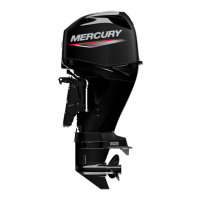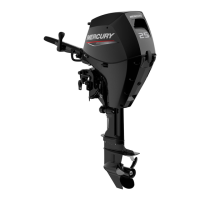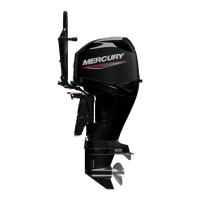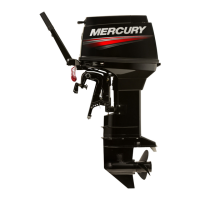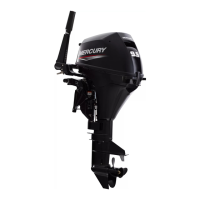GENERAL INFORMATION
Page 1C-2 90-828631R3 MARCH 1999
Conditions Affecting Performance
Weather
ENGINE RPM
Rated hp
Summer hp
Horsepower Loss
Due to Atmosphere
Conditions
Secondary Loss Due to
Propeller Becoming To
Large for Summer
Horsepower
RPM Drop Due
to Weather
Rated RPM
It is a known fact that weather conditions exert a profound effect on power output of internal
combustion engines. Therefore, established horsepower ratings refer to the power that the
engine will produce at its rated rpm under a specific combination of weather conditions.
Corporations internationally have settled on adoption of I.S.O. (International Standards Or-
ganization) engine test standards, as set forth in I.S.O. 3046 standardizing the computation
of horsepower from data obtained on the dynamometer, correcting all values to the power
that the engine will produce at sea level, at 30% relative humidity at 77° F (25° C) tempera-
ture and a barometric pressure of 29.61 inches of mercury.
Summer Conditions of high temperature, low barometric pressure and high humidity all
combine to reduce the engine power. This, in turn, is reflected in decreased boat speeds--as
much as 2 or 3 miles-per-hour (3 or 5 Km per-hour) in some cases. (Refer to previous chart.)
Nothing will regain this speed for the boater, but the coming of cool, dry weather.
In pointing out the practical consequences of weather effects, an engine--running on a hot,
humid summer day--may encounter a loss of as much as 14% of the horsepower it would
produce on a dry, brisk spring or fall day. The horsepower, that any internal combustion en-
gine produces, depends upon the density of the air that it consumes and, in turn, this density
is dependent upon the temperature of the air, its barometric pressure and water vapor (or
humidity) content.
Accompanying this weather-inspired loss of power is a second but more subtle loss. At rig-
ging time in early spring, the engine was equipped with a propeller that allowed the engine
to turn within its recommended rpm range at full throttle. With the coming of the summer
weather and the consequent drop in available horsepower, this propeller will, in effect, be-
come too large. Consequently, the engine operates at less than its recommended rpm.
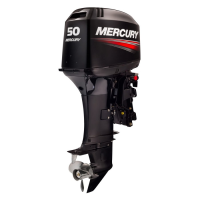
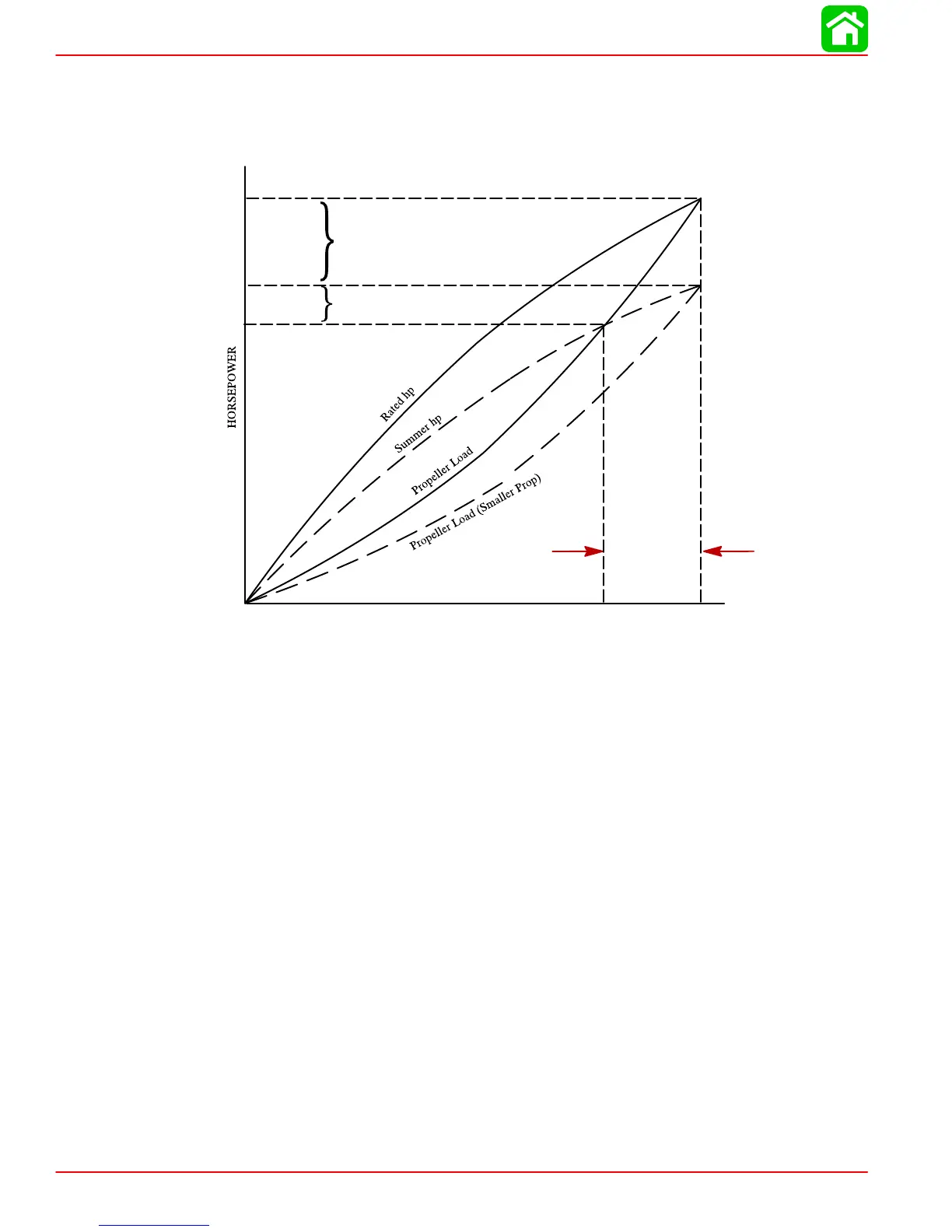